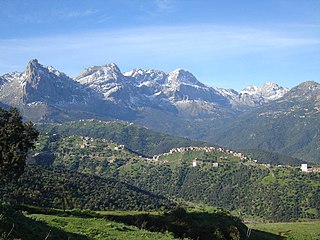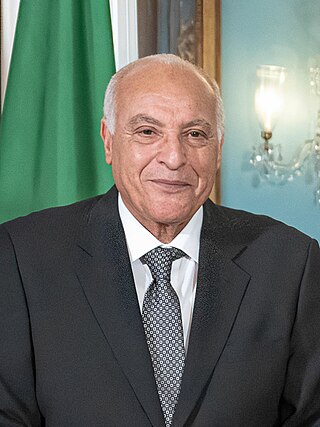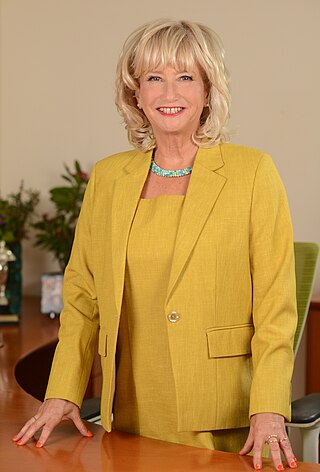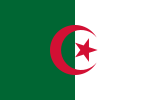In bilingual education, students are taught in two languages. It is distinct from learning a second language as a subject because both languages are used for instruction in different content areas like math, science, and history. The time spent in each language depends on the model. For example, some models focus on providing education in both languages throughout a student's entire education while others gradually transition to education in only one language. The ultimate goal of bilingual education is fluency and literacy in both languages through a variety of strategies such as translanguaging and recasting.
A second language (L2) is a language spoken in addition to one's first language (L1). A second language may be a neighbouring language, another language of the speaker's home country, or a foreign language. A speaker's dominant language, which is the language a speaker uses most or is most comfortable with, is not necessarily the speaker's first language. For example, the Canadian census defines first language for its purposes as "the first language learned in childhood and still spoken", recognizing that for some, the earliest language may be lost, a process known as language attrition. This can happen when young children start school or move to a new language environment.
Language education – the process and practice of teaching a second or foreign language – is primarily a branch of applied linguistics, but can be an interdisciplinary field. There are four main learning categories for language education: communicative competencies, proficiencies, cross-cultural experiences, and multiple literacies.

Kabylia or Kabylie is a mountainous coastal region in northern Algeria and the homeland of the Kabyle people. It is part of the Tell Atlas mountain range and is located at the edge of the Mediterranean Sea.

Language immersion, or simply immersion, is a technique used in bilingual language education in which two languages are used for instruction in a variety of topics, including math, science, or social studies. The languages used for instruction are referred to as the L1 and the L2 for each student, with L1 being the student's native language and L2 being the second language to be acquired through immersion programs and techniques. There are different types of language immersion that depend on the age of the students, the classtime spent in L2, the subjects that are taught, and the level of participation by the speakers of L1.
A foreign language is a language that is not an official language of, nor typically spoken in, a specific country. Native speakers from that country usually need to acquire it through conscious learning, such as through language lessons at school, self-teaching, or attending language courses. A foreign language might be learned as a second language; however, there is a distinction between the two terms. A second language refers to a language that plays a significant role in the region where the speaker lives, whether for communication, education, business, or governance. Consequently, a second language is not necessarily a foreign language.

Multilingualism is the use of more than one language, either by an individual speaker or by a group of speakers. It is believed that multilingual speakers outnumber monolingual speakers in the world's population. More than half of all Europeans claim to speak at least one language other than their mother tongue; but many read and write in one language. Being multilingual is advantageous for people wanting to participate in trade, globalization and cultural openness. Owing to the ease of access to information facilitated by the Internet, individuals' exposure to multiple languages has become increasingly possible. People who speak several languages are also called polyglots.

Ahmed Attaf is an Algerian politician and diplomat. He is the current Minister of Foreign Affairs and the National Community Abroad since March 18, 2023, after having held the position from early 1996 to late 1999.
Education in Algeria is free and compulsory for Algerians from the ages of 6 to 15. However, only half of Algerian students are enrolled in secondary schools. As of 2015, Algeria has 92 post-secondary institutions, which includes 48 universities.
Mute English is a term coined in the People's Republic of China to describe a phenomenon where people cannot speak English well and have a poor listening comprehension as a second language, typically through the traditional method of English language teaching where English is only taught as a subject. The phrase is a calque of the Chinese phrase "哑巴英语". The phenomenon is sometimes referred to as Dumb English.

Relations between France and Algeria span more than five centuries. This large amount of time has led to many changes within the nation of Algeria; subsequently, affecting the relations enormously. Through this time period, Algeria has gone through being part of the Ottoman Empire, being conquered and colonized by France, playing an important role in both world wars, and finally being its own nation. Over time, relations between the nations have suffered, as tension between Algerians and the French have increased.

There are a number of languages in Morocco. De jure, the two official languages are Standard Arabic and Standard Moroccan Berber. Moroccan Arabic is by far the primary spoken vernacular and lingua franca, whereas Berber languages serve as vernaculars for significant portions of the country. The languages of prestige in Morocco are Arabic in its Classical and Modern Standard Forms and sometimes French, the latter of which serves as a second language for approximately 33% of Moroccans. According to a 2000–2002 survey done by Moha Ennaji, author of Multilingualism, Cultural Identity, and Education in Morocco, "there is a general agreement that Standard Arabic, Moroccan Arabic, and Berber are the national languages." Ennaji also concluded "This survey confirms the idea that multilingualism in Morocco is a vivid sociolinguistic phenomenon, which is favored by many people."

Helen Doron is a British linguist and educator. She is best known as the creator of the Helen Doron Method of teaching and as the Founder of Helen Doron Educational Group, an international pedagogic network for babies, children, and teens learning English and other programs, including Helen Doron Academy Kindergartens, Helen Doron International, MathRiders and Helen Doron Connect.
A significant construct in language learning research, identity is defined as "how a person understands his or her relationship to the world, how that relationship is structured across time and space, and how the person understands possibilities for the future". Recognizing language as a social practice, identity highlights how language constructs and is constructed by a variety of relationships. Because of the diverse positions from which language learners can participate in social life, identity is theorized as multiple, subject to change, and a site of struggle.
The emphasis on English education in China only emerged after 1979 when the Cultural Revolution ended, China adopted the Open Door Policy, and the United States and China established strong diplomatic ties. One estimate of the number of English speakers in China is over 200 million and rising, with 50 million secondary school children now studying the language.
The University of Batna 2 is a non-profit Algerian public University located in Fesdis, Wilaya of Batna in Algeria. It was founded in 1977 as University of Batna and then restructured in July 2015 by presidential decree, which led to a split into two distinct universities, namely University of Batna 1 and University of Batna 2. On 4 February 2017, the university was named after the Algerian national Hero Mostefa Ben Boulaïd. Also called the father of the Algerian revolution whose centenary celebration was held in the city of Batna. Now UB2 University Mostefa Ben Boulaïd is one of the largest Universities in Algeria and Africa with its (33.458) enrolled students and (1,833) staff members. Under the authority of the vice-chancellor Dr. Tayeb Bouzid, the university comprises a general management office, four vice-rectorates, five faculties, three institutes, and a central library.

Abdelmadjid Tebboune is an Algerian politician currently serving as the President of Algeria since December 2019 and as Minister of Defence.
Events from 2020 in Algeria.
Events from 2021 in Algeria.

English is a secondary language of Lebanon, with 40% of the population saying in 2011 that it can speak it non-natively.









